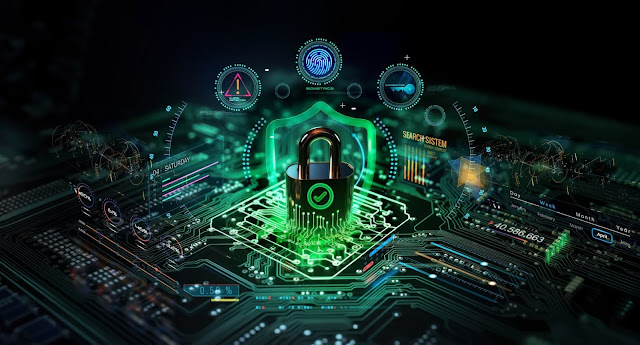In the vast expanse of the digital world, concerns over online privacy and security have never been more paramount. As much as the internet has revolutionized our lives, it has also opened Pandora's box of potential threats including data breaches, surveillance, and cyber-attacks. Amidst this landscape of digital peril, VPNs, or Virtual Private Networks, emerge as custodians of privacy and safety. But what lies behind the mystique of VPNs? Let's untangle the enigma and explore why VPNs are indispensable in our cybersecurity arsenal.
What Is a VPN and How Does It Work?
A VPN stands for Virtual Private Network, a technology designed to provide a secure tunnel for your internet connection. Think of it as a protective cloak that masks your online activities from prying eyes. When you connect to a VPN, your internet traffic is rerouted through a specially configured remote server run by the VPN provider. This transformation does a few crucial things:
-
Encrypts your data: Even if someone intercepts your data, they won't be able to decipher it.
-
Hides your IP address: Websites and third parties see the VPN server's IP instead of your device's.
-
Securely connects to public Wi-Fi: Public networks become less of a threat, as your connection is encrypted.
The Importance of VPNs in Today's Digital Age
Privacy from ISPs
Without a VPN, your Internet Service Provider (ISP) can see everything you do online. In some regions, ISPs can legally sell your browsing history to advertisers. A VPN ensures that the only thing your ISP can see is encrypted data and the connection to the VPN server.
Safeguarding Sensitive Information
For anyone using public Wi-Fi frequently, VPNs are non-negotiable. Hackers often prey on these networks to intercept sensitive data. A VPN ensures that whether you're sending an email or entering your credit card information, your data is wrapped in a cocoon of encryption.
Bypassing Geo-Restrictions
Ever been thwarted by a message telling you content is not available in your region? VPNs provide a passport to cross these digital borders, granting access to content worldwide by changing your virtual location.
Selecting the Right VPN: A Buyer's Guide
Prioritize Security Protocols
Look for VPNs offering a range of protocols, such as OpenVPN, IKEv2, and WireGuard, catering to both security and speed. Also, ensure it provides AES-256 encryption the gold standard in the industry.
Insist on a No-logs Policy
The core essence of using a VPN is to enhance privacy. A no-logs policy means the VPN provider does not store records of your online activities, ensuring your online behavior remains truly anonymous.
Check the Number of Servers and Locations
More servers mean less load and potentially higher speeds. More locations offer more options for geo-spoofing. This is particularly important for users looking to bypass censorship and access content from around the globe.
Speed and Reliability
A VPN will generally slow down your internet connection due to the encryption process. The best VPNs minimize this slowdown. Opt for services known for their speed and reliability.
User-Friendly Interface
Complicated settings and configurations can deter you from using the VPN effectively. A user-friendly interface helps to ensure you can leverage all its features to maximize your security.
Price vs Value
Free VPNs can be tempting but may compromise your security. They often sell your data to third parties as a revenue source. Premium VPNs invest in a wide server network, strong encryption protocols, and responsive customer support. Remember, the least expensive service is not always the best, but nor is the most costly. Match the service offerings to your needs.
Common Misconceptions about VPNs
-
VPNs make you anonymous: While VPNs significantly increase your privacy online by hiding your IP address and encrypting your data, they don't make you entirely anonymous. Some level of trust is placed in the VPN provider.
-
All VPNs are the same: No two VPNs offer the same service. Differences in encryption levels, privacy policies, and server locations can drastically alter the efficacy of a VPN.
-
A HTTPS connection replaces a VPN: HTTPS encrypts the data between your browser and the website, offering increased security. However, unlike a VPN, it won't encrypt your entire connection or hide your IP address.
Is It Legal to Use a VPN?
Yes, in most countries, using a VPN is perfectly legal. It's a legitimate tool for enhancing your online security and privacy. However, it's crucial to use it responsibly. Some countries with strict censorship laws have specific regulations around VPN use. Always check the legal stance in your country or any country you plan to visit.
Conclusion
In an era where our virtual footprints are constantly monitored and analyzed, understanding and utilizing VPN technology becomes not just beneficial but essential for maintaining our digital autonomy. It claws back a layer of privacy and security often stripped away by entities we don't even know are watching. While it's not a silver bullet for all cyber threats, a robust VPN is a significant step in safeguarding one's digital life in this interconnected world. Remember, the goal is not to hide in the shadows but to ensure that we have control over what we reveal and to whom. Demystifying VPNs and embracing them as part of our daily virtual routines is not just a techno-savvy move; it's a commitment to personal freedom and security.




0 Comments
Post a Comment